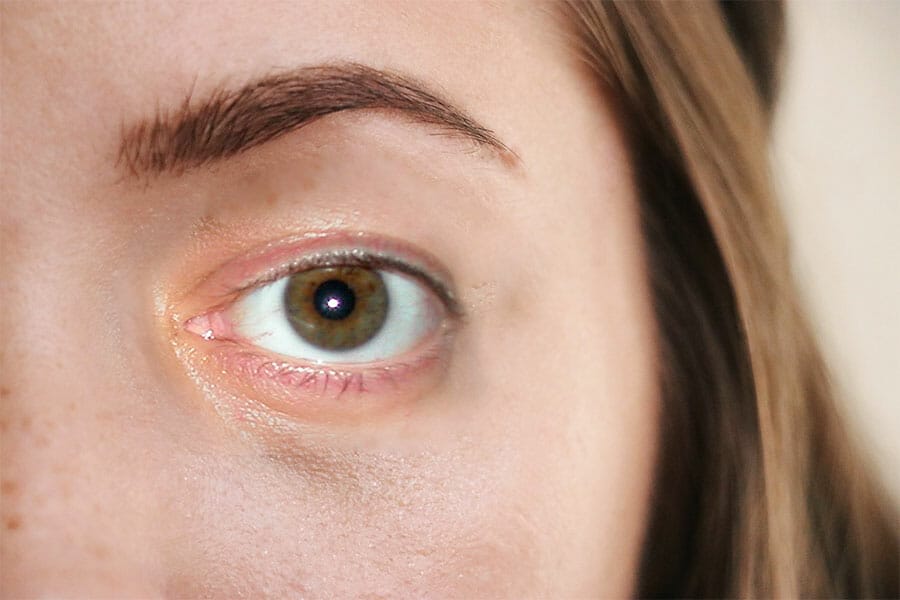If you're looking into the effectiveness of tea tree oil for blepharitis, you're likely curious about natural treatments for this eye condition. Tea tree oil has garnered attention for its potential role in managing blepharitis, particularly when a demodex mite infestation is identified as the cause. This recommendation is supported by the Dry Eye Workshop 2 (TFOS DEWS2), a study that provides a comprehensive guide to managing dry eye disease, which often coexists with blepharitis.
What Is Tea Tree Oil? Is it Safe to Use for Blepharitis?
Tea tree oil is a natural essential oil known for its antimicrobial and anti-inflammatory properties. It's used in treating a range of skin and eye conditions, from chalazions and styes to dry eyes and ocular rosacea. The oil is especially useful in killing demodex mites—tiny parasites found on eyelashes that can exacerbate blepharitis.
While there is some evidence to suggest that tea tree oil may have antibacterial properties that can help treat blepharitis, the scientific evidence is limited. In fact, a recent study found that tea tree oil was not as effective as conventional treatments for blepharitis. That's why a consultation with our eye doctor is vital for determining the best approach for you.
The link between Demodex Mites and Blepharitis
Demodex is a type of mite that can live on the skin and is known to cause a condition called blepharitis. Blepharitis is a condition characterized by inflammation of the eyelashes and the skin around the eyes. There are two species of demodex mites that are commonly found on the skin: Demodex folliculorum and Demodex brevis. These mites are usually harmless, but in some cases, an overpopulation of these mites can lead to skin irritation and blepharitis.
The following are some common symptoms of demodex blepharitis:
- Itching and redness of the skin around the eyes
- Papules, pustules, and nodules around the eyes
- Scaly patches on the skin around the eyes
- Burning or stinging sensation around the eyes
- Inflammation of the eyelashes
- Loss of eyelashes
- Redness and pimple-like bumps around the eyes
Not everyone who has demodex mites will experience symptoms. However, if you are experiencing skin irritation or other symptoms around the eyes, it is best to consult a dermatologist for proper diagnosis and treatment. Blepharitis can be treated with a combination of lid hygiene, antibiotics, and other topical medications, but it is important to seek medical advice to ensure proper treatment.
Consult an Eye Doctor First
Before you start using tea tree oil, it's crucial to consult our optometrist. Pure tea tree oil can irritate the eyes or even cause vision damage. Our eye doctor can provide individualized advice on how to safely and effectively use tea tree oil for your condition.
It's also important to keep in mind that the severity of blepharitis can vary greatly from person to person. Some people may experience mild symptoms that can be easily managed with simple lifestyle changes and over-the-counter products, while others may require more aggressive treatment to manage their symptoms.
Additionally, it's important to remember that blepharitis is a chronic condition that requires ongoing management. Even if you do find relief from your symptoms with tea tree oil or other treatments, it's important to continue working with our eye doctor to monitor your condition and make any necessary adjustments to your treatment plan.
Symptoms of Blepharitis and its Impact on Vision
Blepharitis is a common eye condition that affects the eyelid margins. It is characterized by inflammation and redness of the eyelids, as well as the formation of crusty debris on the eyelashes. Some common symptoms of blepharitis include:
- Irritated, itchy, and swollen eyelids
- Crusty debris on the eyelashes
- Red, inflamed eyelids
- Burning or stinging sensation in the eyes
- Light sensitivity
- Blurred vision
- Dry, flaky skin around the eyes
Causes of Blepharitis
Blepharitis is a common eye condition that affects the eyelid margins, causing inflammation and redness. There are several different causes of blepharitis, including:
- Bacterial infections: Staphylococcus bacteria is one of the most common causes of blepharitis.
- Sebum or oil gland dysfunction: Overactive oil glands in the eyelid margins can cause clogging, leading to blepharitis.
- Skin conditions: Blepharitis can be a complication of conditions like rosacea, dandruff, or seborrheic dermatitis.
- Demodex mites: These tiny mites are naturally present on the skin and are usually harmless, but in some cases, they can cause blepharitis.
- Dry eyes: Chronic dry eyes can cause the eyelid margins to become irritated, leading to blepharitis.
- Irritants: Exposure to environmental irritants, such as pollutants or chemicals, can cause blepharitis.
- Aging: As we age, our oil glands may become less active, leading to a higher risk of blepharitis.
Take our dry eye assessment to see if your symptoms indicate that you are suffering from treatable dry eye disease.












